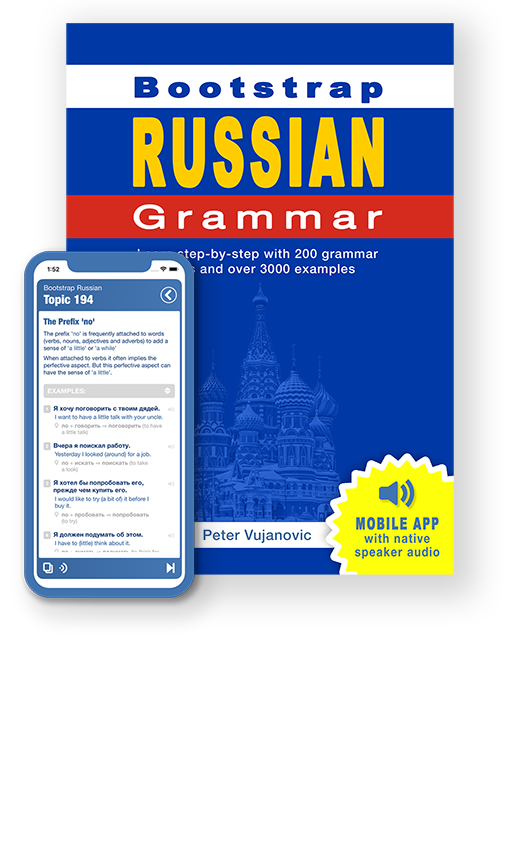Russian grammar - Verbs of motion and prefixes: приходить and прийти |
|||
|
|||
The meanings of the many Russian verbs can be modified by the use of prefixes. The prefix «при-» gives the sense of bringing the action to the final goal, to achieve, to reach a destination. This prefix is used in the verb pair приходить / прийти to mean 'to come (on foot)', 'to arrive (on foot)', 'to reach (on foot)'. By definition приходить / прийти are uni-directional. They conjugate and form their past tenses exactly like the original ходить and идти. |
| Examples: | |
|
Она приходит в бассейн одна.
She comes to the swimming pool alone.
|
|
|
Я пришёл не один.
I (male) did not come alone.
|
|
|
Мы пришли!
We have arrived!
|
|
|
Они ещё не пришли домой.
They have not yet arrived home.
|
|
|
Вчера вечером они пришли к нам на ужин.
Last night they came to dinner at our house.
|
|
|
Когда он приходил, было холодно.
When he was coming it was cold.
|
|
|
Когда он пришёл, у него были холодные ноги.
When he arrived, his feet were cold.
|
|
|
Мы пришли слишком поздно.
We came too late.
|
|
|
Почему ты всегда приходишь так рано?
Why do you (informal) always come so early?
|
|
|
Когда ты хочешь, чтобы я пришёл?
When do you (informal) want me to come/arrive?
|
|
|
Очень часто вы приходите очень поздно.
Very often you (formal) arrive very late.
|
|
 |
|


 (imperfective)
(imperfective) 